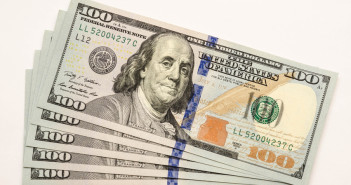In an interview with Mauricio Carrillo on FXStreet, I discussed the upcoming Fed decision, GDP, various Brexit implications and more:
The interview was originally published here or you can read it below:
Do you think the Federal Reserve will offer any hint for an interest rate hike in the next months?
The Fed is unlikely to provide a hint for a rate hike in the upcoming months. While the US economy certainly looks OK, the worries about the impact of Brexit as well as the upcoming US elections will prevent Yellen and co. from raising rates. While some think that Yellen could use the Jackson Hole appearance in late August to hint about a hike, it still seems unlikely. The earliest possible date for a hike would be immediately after the elections, in December. This would require a sound economy and a hint could be released during the month of November and early December.
What do you expect for the GDP and how it will affect the USD?
I expect a rebound in growth after 2 quarters of less than mediocre growth rates. In annualized terms, a return to 2% is on the cards, but probably not much higher. This is slightly below expectations and could temporarily hurt the US dollar. It is important to note that the US will also release revisions for past figures and this could cause some confusion. Another thing to bear in mind that the Fed will probably have the GDP data in front of their eyes and before we have them. This means that a hawkish statement could imply a strong number, perhaps above 3%, while worries could mean a sub 2% figure.
With the EUR/USD trading around 1.1000, what is your forecast for the common currency and how low, or high, it could go?
EUR/USD has been one of the more frustrating pairs and we would another shocker to take it out of range. This might come in the shape of a bank-run with growing problems in European banks or if Trump continues rising in the polls. For the next month, I think we could see a range of between 1.0820 to 1.1190. A shock could send it lower, but not below the 1.05 level at least before the US elections.
Looking back, do you think the Brexit had the effect in markets that we all were expecting?
The asymmetric risk into the vote certainly materialized: a vote to Remain was priced in and the collapse of the pound, which lasts a month after the event, was certainly one to be expected on such a big shock. In stocks, we have a different story with a swift recovery in international stocks (FTSE 100) that enjoyed promises of monetary easing and domestic stocks (FTSE 250) which still struggle. While we do have more certainty with the quick formation of a new government, a lot of uncertainty remains. This is seen in the poor PMIs, worries about the housing sector as well as worries about the future of people who have crossed the Channel. I believe there will be more pressure on the pound.
In your opinion, will the BoE sink in the middle of tons of printed money? Are they failing in its recovery attempt?
The BOE wants to cushion the Brexit slowdown which is becoming evident, but its tools are limited. The ball lies mostly in the court of the government which can both provide more certainty regarding the exit and provide fiscal stimulus. I do think the BOE will offer more QE, perhaps in the tune of 50 billion pounds and perhaps compound it with a 25bp rate cut, to send a stronger message. In terms of real impact, the BOE has already done quite a bit by providing liquidity.
